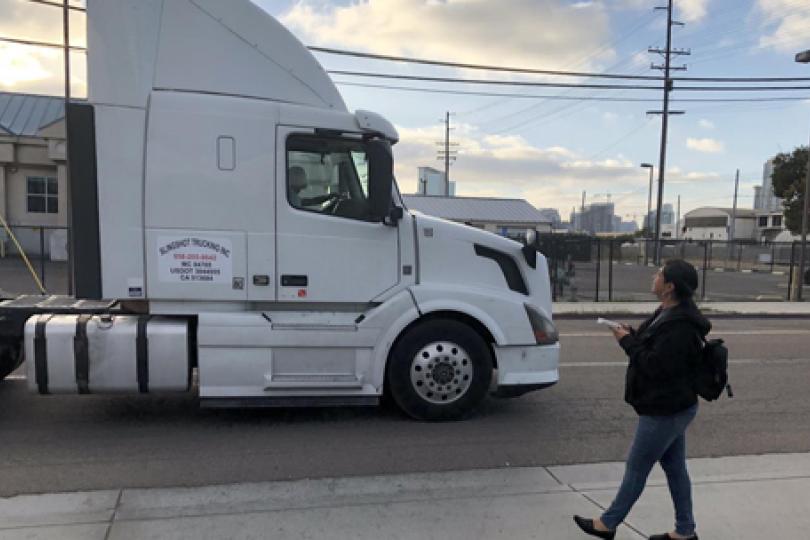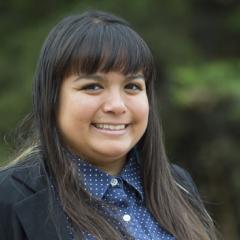Monitoring air quality and mapping border environmental justice issues
The goals of the project between Environmental Health Coalition (EHC) and Switzer Fellow Dr. Carolina Prado were two-fold: (1) to establish a community air monitoring project in the Barrio Logan neighborhood of San Diego to evaluate ambient air quality and the effectiveness of air filters in improving indoor air quality, and (2) to develop a series of environmental justice indicator maps for the Eastern Tijuana (Mexico) region. Carolina Prado was hired by EHC as Senior Environmental Scientist for a one-year period to help the organization accomplish these goals, while also allowing her to develop a body of work that was separate from, and expanded, her dissertation work on air quality, public health and environmental justice.
In Barrio Logan, Dr. Prado developed the methods, protocols, forms, and analytical techniques to launch EHC's air monitoring project. She trained 120 community members on the importance of good air quality for respiratory health, guided volunteers in air sampling collection across the neighborhood, and installed air filters on a pilot basis in targeted homes. The community relationships Dr. Prado built will be called upon as the project is scaled up in the coming year as Barrio Logan residents engage with the City of San Diego on urban planning initiatives, including a big picture goal of having clearer separation between residential and industrial land uses. One great policy victory that was recently passed was San Diego's first truck ordinance which regulates where trucks can and cannot go. (Diesel truck pollution is a major contributor to poor air quality in this neighborhood.)
In the Tijuana communities of Colonias Murua, Arenales, Chilpancingo, Loma Bonita, 10 de Mayo, Insurgentes, and Granjas Familiares, Dr. Prado empowered community members to develop the very first environmental justice indicator maps for the region. Twenty-four residents learned mapping techniques that they utilized in over 16 neighborhood mapping sessions led by Dr. Prado. The final five community maps spanned seven neighborhoods and included important environmental health sites such as mechanic shops, semi truck parking, child care centers, and parks. The maps were submitted to Tijuana's municipal planning agency, IMPLAN, for their incorporation into the regional community plan. An additional output from this work that is still in process is a policy memo to be submitted to the EPA's Border 2020 working group. Dr. Prado taught community members how to create and update the maps so they can continue the work into the future. Data will continue to be used by community advocates to inform the City of Tijuana's process of phasing out certain land uses in residential areas (e.g., recycling centers that contain hazardous materials).
Carolina Prado leveraged key leadership capacities that enabled the success of the programs over the year. For the education components, her experience in developing popular education curriculum ensured accessibility of the trainings for residents of all ages and abilities. Carolina also led all workshops and presentations, which spoke directly to and enhanced her public speaking and classroom management skills. Both programs involved coordination and management of partner groups in the data collection: Family Health Centers of San Diego, Barrio Logan College Institute, RECIMEC, Monarch School, and Perkins Elementary School. Managing partners and relationships was a key skill demonstrated by Carolina Prado. Finally, her capabilities for logistical planning allowed her to coordinate small details alongside the bigger goals/objectives, ensuring smooth project execution.

